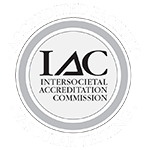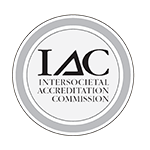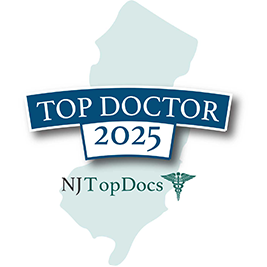
And How You Can Break Them for Better Vascular Health
Strokes often strike without warning, and yet many of the risk factors are rooted in our daily choices. At The Cardiovascular Care Group, we believe that prevention starts with education—and that small lifestyle changes can make a big difference in lowering your stroke risk.
Here are 7 everyday habits that may be silently increasing your chances of having a stroke—and what you can do to change course:
1. Sitting for Long Periods of Time
Spending hours seated—especially without movement—can impact your glucose levels, lipid metabolism and blood flow, increasing your risk of stroke over time.
Try This: Set a timer to stand up and move every 30–60 minutes. Short walks, stretching, or using a standing desk can improve vascular health.
2. Eating a High-Sodium, Processed Diet
Too much salt raises blood pressure, one of the leading causes of stroke. Processed and fast foods are especially high in sodium and unhealthy fats.
Try This: Cook more meals at home, opt for whole foods, and read labels carefully to limit sodium intake.
3. Ignoring High Blood Pressure
Hypertension is often called the “silent killer” because it doesn’t always show symptoms—but it's one of the biggest contributors to stroke.
Try This: Check your blood pressure regularly and follow your doctor’s recommendations. Lifestyle changes or medications can help keep it under control.
4. Smoking (or Secondhand Smoke Exposure)
Smoking damages blood vessels, thickens the blood, and accelerates plaque buildup in arteries—dramatically increasing stroke risk.
Try This: Quitting smoking is one of the most powerful steps you can take for vascular and overall health. Ask your provider about support programs or medications that can help.
5. Drinking Excessively
Heavy alcohol consumption can raise blood pressure and contribute to irregular heart rhythms, such as atrial fibrillation, a known stroke risk factor.
Try This: Limit alcohol to no more than one drink per day for women and two for men—or speak to your doctor if cutting back is difficult.
6. Poor Sleep Patterns
Lack of sleep and untreated sleep apnea are both linked to hypertension, heart disease, and stroke.
Try This: Aim for 7–9 hours of quality sleep per night. If you snore loudly or feel tired during the day, talk to a healthcare provider about a sleep study.
7. Skipping Routine Health Screenings
Not staying on top of your health—especially if you have risk factors like diabetes, high cholesterol, or a family history of vascular disease—can keep you unaware of developing problems.
Try This: Schedule annual wellness checks, vascular screenings, and carotid ultrasounds if you’re at risk. The earlier we catch signs of vascular disease, the better we can treat or manage them.
Prevention Starts Now
Stroke is a leading cause of disability and death—but it's also largely preventable. At The Cardiovascular Care Group, we provide expert diagnosis and management of stroke risk factors, including carotid artery disease, peripheral artery disease (PAD), and hypertension.
If you’re concerned about your risk, we encourage you to schedule a vascular screening or consultation with our team.
Take control of your health today—because every small change adds up to a stronger tomorrow.








_2.jpg)